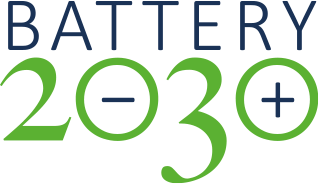Integrating Novel Materials with Scalable Processes for Safer and Recyclable Li-ion Batteries
In the face of climate change, environmental degradation, and far-reaching societal and economic digitization, there is an urgent need for novel battery technologies to support e-mobility, clean energy storage, and consumer electronics. Lithium-ion or Li-ion batteries (LIBs) are crucial due to their high efficiency and energy density compared to traditional lead-acid batteries.
However, despite their widespread use in various applications, current LIB technology still faces significant challenges in performance, sustainability, and recyclability. Additionally, the production of LIBs heavily relies on Critical Raw Materials (CRMs) such as lithium, cobalt, and natural graphite.
To address these challenges, the INERRANT project is dedicated to advancing LIB technologies with a focus on enhancing safety, particularly for Gen 3 LIBs used in mobility applications. INERRANT aims to revolutionise battery safety and sustainability by developing innovative materials, advanced electrolyte formulations, and eco-friendly recycling methods. This comprehensive approach targets the entire battery lifecycle, from design and manufacturing to end-of-life recycling, and strives to meet the technical and economic benchmarks set by the 2030 European SET Plan for Gen 3 LIBs while minimising reliance on CRMs.
INERRANT leverages cutting-edge science and technology to establish safer and more sustainable energy storage solutions, paving the way for a future of eco-friendly and secure mobility. Alongside scientific advancements, the project focuses on knowledge valorisation, industrial scaling, and market uptake, aiming to drive a rapid transformation towards sustainable, circular manufacturing practices. With eleven partners from six European countries and over EUR 4.4 million in funding from the EU’s Horizon Europe programme over the next three years, INERRANT aims to set new benchmarks in large-scale LIB production.

Project Coordinator: Prof. Spyros Yannopoulos, FORTH, Greece
Contact: sny@iceht.forth.gr
Implementing period: 05/2024 – 04/2027

